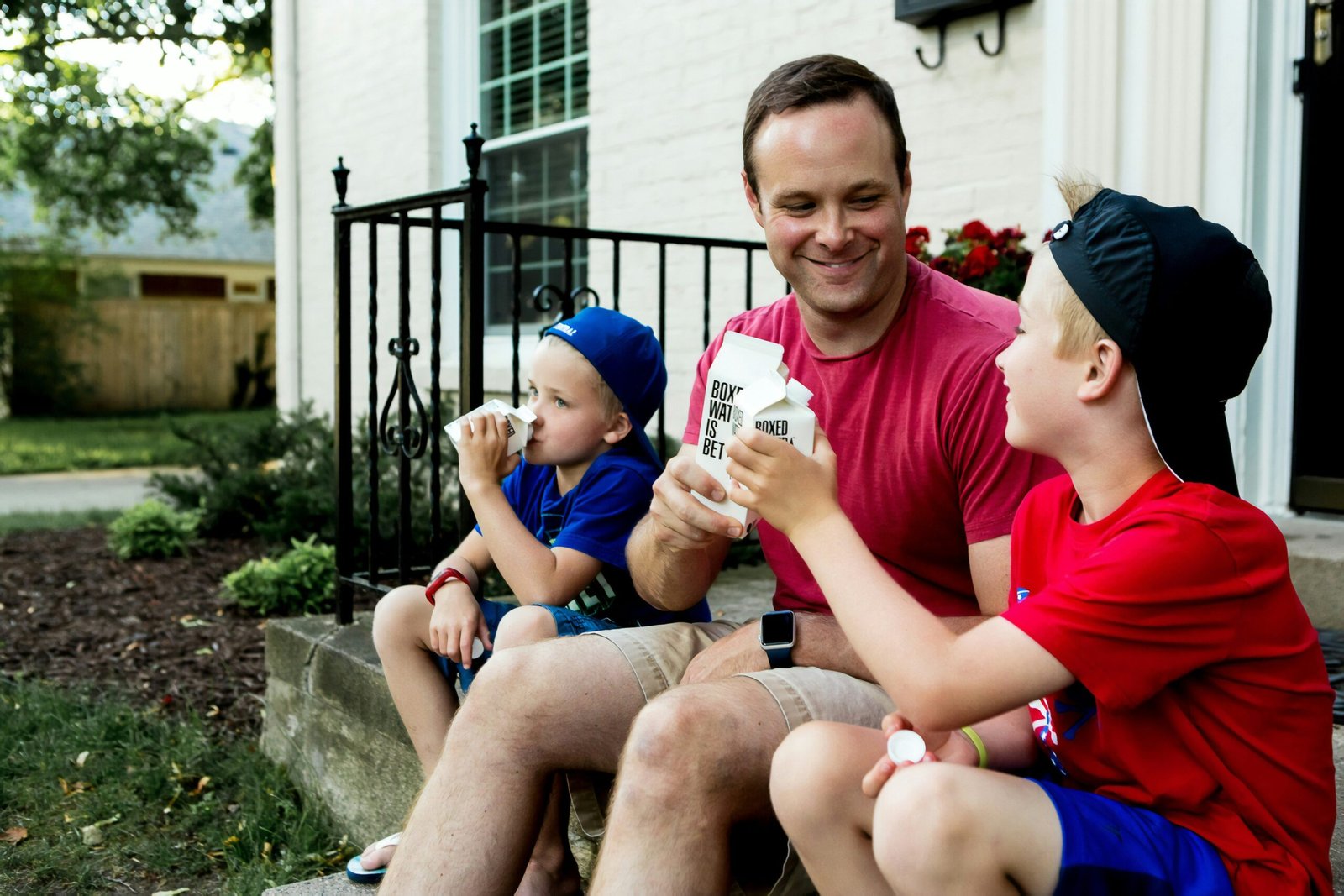The Transition to Parenting Adult Children
Parenting is a lifelong journey that evolves as our children grow. As they enter adulthood, our role as parents shifts, and we find ourselves navigating the delicate balance between providing support and fostering independence. This transition can be both exciting and challenging, as we strive to ensure our adult children have the tools they need to thrive in the world.
Setting Boundaries
One of the key aspects of parenting adult children is setting boundaries. While it is natural to want to protect and guide our children, it is important to recognize that they are now adults capable of making their own decisions. By setting clear boundaries, we can establish a healthy dynamic that respects their autonomy while still offering support when needed.
Boundaries can take many forms, such as financial limits, expectations for communication, and respecting each other’s personal space. It is crucial to have open and honest conversations with our adult children about these boundaries, ensuring that everyone is on the same page and understands each other’s needs and expectations.
Encouraging Independence
As parents, our ultimate goal is to raise independent and self-sufficient adults. Encouraging independence in our adult children means allowing them to make their own choices, take responsibility for their actions, and learn from their mistakes.
This does not mean abandoning them or leaving them to figure everything out on their own. Instead, it means offering guidance and support while allowing them the space to grow and learn from their experiences. By doing so, we empower them to develop the necessary skills and confidence to navigate the challenges of adulthood.
Providing Emotional Support
While our adult children may no longer need us for their day-to-day needs, emotional support remains an essential aspect of parenting. As they face the ups and downs of life, they still rely on us for guidance, understanding, and a listening ear.
It is important to create a safe and non-judgmental space where our adult children feel comfortable sharing their thoughts and feelings. By actively listening and validating their emotions, we can provide the support they need while also encouraging their independence.
Recognizing Their Individuality
Each adult child is unique, in their dreams, goals, and values. As parents, it is crucial to recognize and respect their individuality. Avoid projecting our desires or expectations onto them and instead, encourage them to follow their path.
By embracing their individuality, we foster a sense of self-confidence and self-discovery in our adult children. They will feel empowered to make choices that align with their values and aspirations, leading to a more fulfilling and authentic life.
Seeking Professional Help
Parenting adult children can be complex, and it is normal to encounter challenges along the way. In some cases, seeking professional help can be beneficial for both parents and adult children.
Family therapists or counselors can provide guidance and support in navigating the transition to parenting adult children. They can help facilitate healthy communication, address any conflicts or issues that arise, and offer strategies for maintaining a strong and positive relationship.
Conclusion
Parenting adult children is a unique phase of the parenting journey that requires a delicate balance of support and independence. By setting boundaries, encouraging independence, providing emotional support, recognizing their individuality, and seeking professional help when needed, we can navigate this transition with grace and ensure our adult children thrive in their newfound independence.
Remember, the goal is to raise confident and capable adults who are equipped to handle life’s challenges, while still knowing they have a loving and supportive parent by their side.
⭐ Book Review: A Must-Have Guide for Modern Parenting Challenges
“Parenting Adult Children” is not just another parenting book — it’s a powerful, practical, and compassionate guide for parents learning how to redefine their roles as their children transition into adulthood. With a 4.6-star rating backed by nearly 300 readers, this book delivers real-world insights and empathetic solutions to one of today’s most under-discussed family dynamics.
Written by the seasoned author Skilled Fun, with over 18 years of parenting experience, and co-author Diane Pope, this guide equips readers with actionable strategies for building stronger, healthier relationships with their adult children. Whether you’re navigating boundary setting, struggling with communication, or trying to find a balance between support and independence, this book offers guidance that feels both genuine and empowering.
What truly sets this book apart is its blend of:
Emotional intelligence
Practical tools
Real-life scenarios
Research-driven advice
From conflict resolution tips to exercises that foster mutual respect, “Parenting Adult Children” is ideal for both parents and adult children who want to bridge gaps and grow together.
🛍️ Sales Pitch: Why You NEED This Book Today
✅ Are you a parent wondering how to stay close without overstepping?
✅ Feeling confused about your adult child’s independence vs. your instinct to protect?
✅ Want to rekindle connection and create a healthy, respectful family dynamic?
Then this is your ultimate handbook.
✨ “Parenting Adult Children” helps you:
Communicate with confidence and compassion
Set boundaries that nurture independence, not distance
Foster emotional connections even during disagreements
Embrace evolving roles with dignity and trust
🧠 Backed by research.
💡 Full of wisdom.
❤️ Rooted in empathy.
Thousands of families are already seeing the change — and you can too.
🎯 Perfect for:
Parents struggling with “empty nest” shifts
Families facing generational miscommunication
Adult children looking to improve relationships with their parents
🔗 Ready to transform your parent-child relationship?
📥 Download it now on Kindle and start building the bond you both deserve.

Parenting Adult Children
#ParentingAdultChildren #FamilyConnections #ParentingTips #RelationshipGoals #ParentingBooks #KindleReads #CommunicationMatters #HealthyBoundaries #AmazonFinds #MustReadParenting














Raising Resilient Children: Preparing Them for Adulthood - affinitylink.in
[…] Children learn by observing and imitating their parents. Model resilience in your own life by demonstrating positive coping mechanisms, perseverance, and a healthy response to failure. Share stories of your challenges and how you overcame them. By showing your children that setbacks are a normal part of life and can be overcome, you are providing them with a valuable example to follow. […]